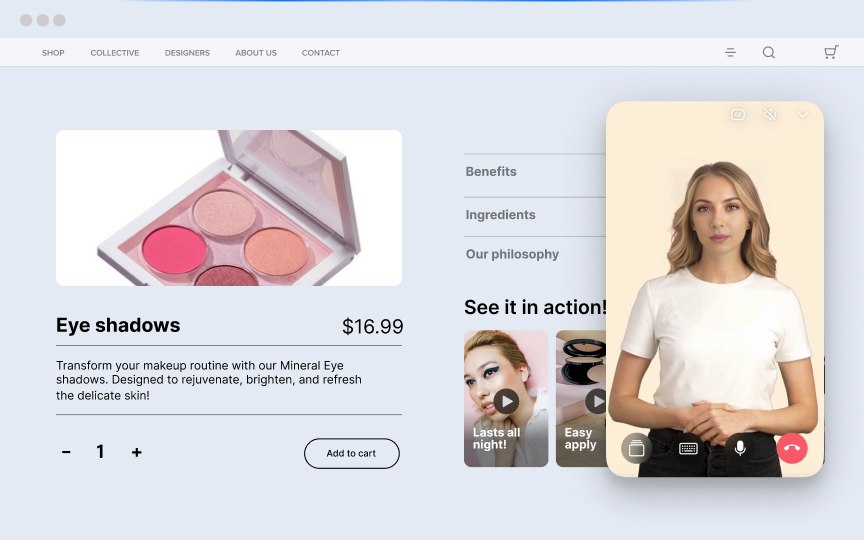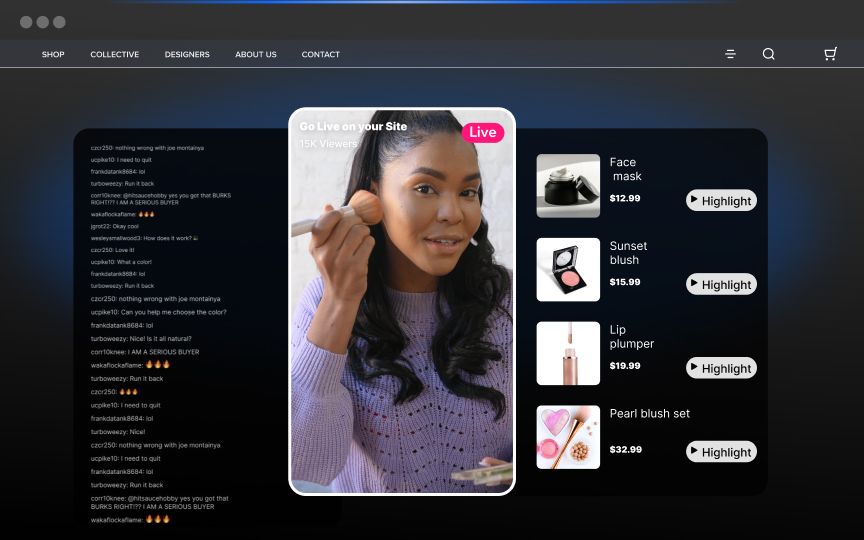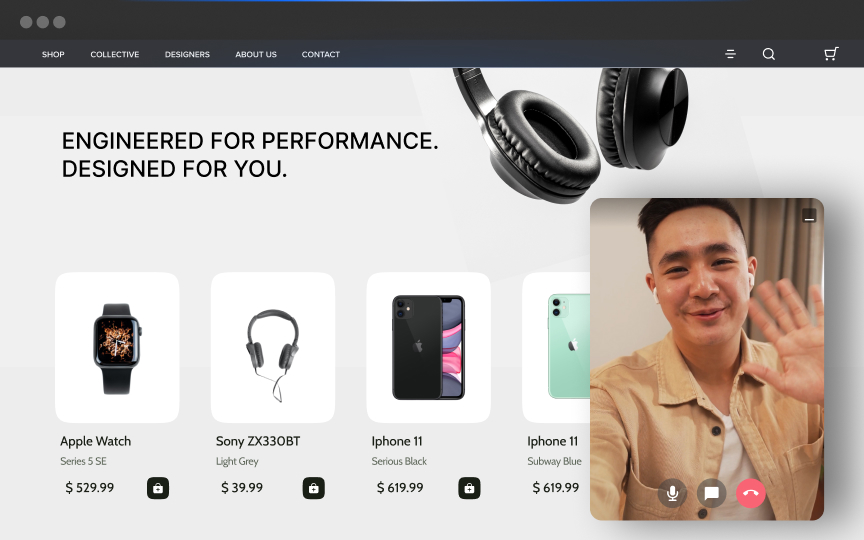Direct-to-consumer retail has evolved far beyond simply cutting out the middleman. Today's DTC brands are redefining customer relationships entirely, leveraging data ownership and supply chain control to create experiences that traditional retail partnerships simply can't match. The pandemic accelerated this trend exponentially. Many brands realized they could launch online stores, handle shipping, and retain all the profits for themselves.
Consumers want more than just products in a box; they want personalized recommendations, transparency in the supply chain, and seamless delivery experiences. If you’re still relying on traditional retail partners, consider this a wake-up call. Nimble DTC competitors own their customer data, control their story, and adapt to trends instantly while conventional retailers struggle to keep pace.
Why Retailers Are Embracing DTC
Savvy retailers are making the switch because DTC fundamentally transforms how they operate and profit. The advantages span from operational control to financial gains, creating sustainable competitive advantages that traditional retail simply can't match.
Increased Control Over Brand and Operations
Going direct-to-consumer puts you in the driver's seat of your brand's story and operations. You decide how products look, what your messaging says, and how customers experience your brand at every touchpoint. No more navigating approval processes with retail partners or compromising your vision.
You set your own prices and make decisions faster with fewer people involved. Need to update products or switch marketing tactics? Just do it. DTC brands build stronger identities through complete oversight of the customer journey, creating seamless experiences that resonate with shoppers. This comprehensive control makes all the difference.
Higher Profitability and Cost Efficiency
The DTC approach significantly boosts your bottom line by eliminating the middlemen. You capture both wholesale and retail margins, typically 30–50% of the final price. You'll also spend less on expensive retail spaces while gaining direct visibility into demand, which streamlines inventory management.
These financial gains create a virtuous cycle, allowing for more profits to be reinvested in product development, marketing, and customer support. By eliminating wholesale distributors, you protect your margins and create a sustainable business model that keeps customers coming back.
Enhanced Customer Relationships and Insights
DTC creates direct lines to your customers, fostering genuine connections that traditional retail can't match. You gain access to rich customer data, purchase histories, browsing behaviors, and demographics, enabling truly personalized experiences.
You can tailor offers, messages, and shopping journeys to individual preferences, creating deeper engagement. Many DTC brands build thriving communities through exclusive events and member perks. The first-party data you collect helps you understand why people buy, optimize marketing, and become more responsive to customer needs.
Greater Agility and Innovation
With DTC, you can launch new products in days, not months, with no retailer approval required. Customer feedback flows directly to you, enabling rapid improvements that keep pace with changing preferences and competitive pressures.
This quick adaptability turns customer insights into opportunities. You can test ideas on a small scale before full rollout, minimizing risk while maximizing learning. These advantages enable a nimble business to pivot quickly as markets evolve.
.jpeg)
How You Can Implement DTC Strategies
Implementation success depends on building the proper foundation and optimizing every customer touchpoint. Focus on creating seamless experiences that blend technology with genuine customer care.
Build Your Digital Foundation
Starting your direct-to-consumer channel begins with a website that works flawlessly on any device. Pick an ecommerce platform built for growth. Shopify and WooCommerce lead the pack because they connect payments, inventory, and marketing tools with minimal setup, including the ability to launch an Instagram shop that meets customers where they already scroll.
Optimize for Mobile and Video
After laying this foundation, optimize everything for mobile. Most shoppers browse vertically on phones, so design your content accordingly. Think of lightning-fast pages packed with vertical video that mirrors the way people consume content. Interactive video transforms passive browsing into active shopping, a form of social commerce that blurs the line between discovery and purchase. By adding shoppable video with Firework's AI-powered video commerce solution, you turn your site into a 24/7 video showroom.
Focus on User Experience and Data
User experience matters tremendously. Simple navigation, detailed product pages, and frictionless checkout keep customers moving forward. Smart data use drives revenue. Track browsing behavior, quiz answers, and purchase history, then feed this information into systems like Klaviyo for personalized messaging.
Test and Scale Continuously
Create a regular testing schedule. Try a new product variant, test different price points, or experiment with subscription offers on a quarterly basis to optimize your sales strategy. Scale up what works and quietly retire what doesn't; this feedback loop drives continuous improvement.
DTC Vs Traditional Retail: Performance Comparison
The performance gap between DTC and traditional retail reveals why forward-thinking brands are making the switch. These differences impact everything from profit margins to customer relationships.
DTC Success Stories That Prove It Works
These market leaders demonstrate how DTC strategies deliver results across different industries. Brands in the beauty ecommerce arena, from skincare startups to global cosmetics giants, have also proven how direct data and storytelling accelerate growth.
- Warby Parker reinvented eyewear shopping by combining home try-on kits with free returns, building customer confidence while eliminating optical markup costs.
- Dollar Shave Club transformed razor blades into an affordable subscription service that exploded after one clever video, a strategy many DTC brands continue to study.
- When lockdowns hit, Sonos quickly adapted by upgrading its online store, driving direct sales to new heights when physical retail wasn't an option.
- Even industry giant Kraft Heinz joined the movement with its Heinz to Home initiative. They utilized this platform to experiment with new product bundles and enter markets in weeks, demonstrating that DTC is effective for businesses of all sizes.
Ready to Make the Switch?
By selling directly to customers, brands gain control over every detail of the journey, from brand storytelling to pricing, building trust and consistency. Eliminating middlemen enables DTC brands to retain 30–50% of their gross margin, which wholesalers and retailers would otherwise absorb.
The benefits extend beyond finances. Direct data connections enable precise personalization that meets the expectations of modern shoppers. Ready to transform conversations into sales? Try Firework's AI-powered video commerce platform today to create a 24/7 video showroom that brings your DTC strategy to life. Book a Firework demo to learn how easy and hassle-free it can be!
Unlock Exclusive Insights
By submitting this form, you agree to Firework's privacy policy and consent to receive personalized marketing communications. You can unsubscribe at any time.






















.jpeg)

.jpeg)

